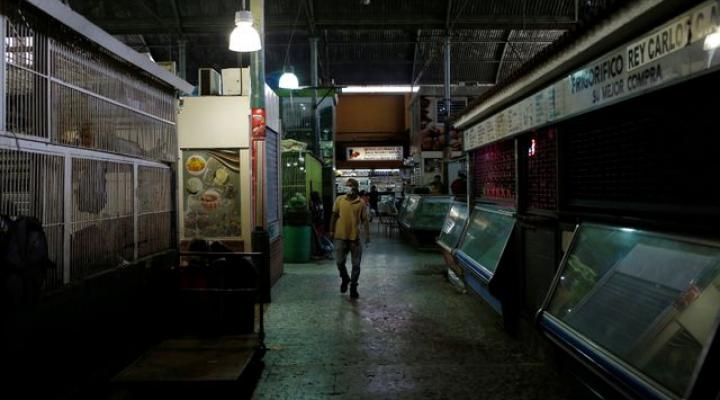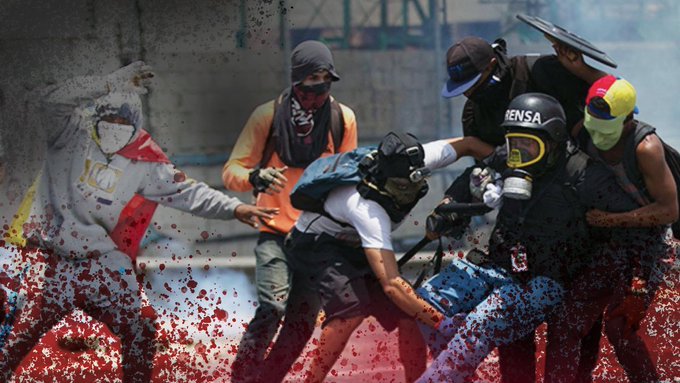A pending and urgent task that us, Venezuelan feminists have, is to show with clearer arguments than we have used so far, that in this, our beloved country, we are far from having achieved real equality in terms of opportunities between women and men and that patriarchy and sexism live freely as it is expected in a good Caribbean country.
For a better understanding, let’s see that the Royal Academy on the Patriarchate states: “Primitive social organization in which the authority is exercised by the male head of the family, extending this power even to the most distant relatives of the same lineage.” It is a political, economic, religious and social system based on the privilege of being a man. In other words, a culture in which men dominate women.
And machismo which is: “attitude or way of thinking of who supports that the man is, by nature, superior to the woman”. The point is that the attitudes, many times unconscious, set behavior guidelines for a social group and are justified in the name of culture and traditions. That is the problem that we feminists encounter, breaking that set of beliefs on which the open shed is based, as we know it today. This is that is called Radical Feminism, because it goes to the root of the matter itself.
In Venezuela, matriarchy (from the Latin mater and Greek to govern) does not exist, as many argue, because we do not live in a society where women have a central role in political leadership, neither control over property. Only the custody of the children, which in itself often becomes barriers to move at our leisure. Many families have no choice but to be matricentrists, because the father is absent, but not because that is an expression of real exercise.
No matter how many jokes are made about the idea that “in my case the woman is the boss”, the power of women does not leave the four walls of their house, if they are lucky to have the property title, but instead, their power always stays in the private sphere. We are not included in what is public, in political decision making, in the management of companies or political parties or governments…
That there is more or less machismo than in other countries of the Latin American region will have to be seen and measured. But that a priori judgment does not detract from the entrenched practices and customs that lie under the belief that women are second class citizens and that political and economic power belongs to men.
We have ample examples of this
We live in a country where street harassment exists among the many expressions of gender violence, which start in the disqualification of thinking as a woman (it had to be a woman) and ends in physical blows and femicides. The one who’s raped and dares to file a complaint is doubly victimized, because the blame is attributed to her way of dressing or acting or being. A country where there are no effective protection mechanisms for the victims leaving them to their fate under the idea that they learn to defend themselves better for the next one. #JusticeForAngelaAguirre
A country, where sexist and misogynist jokes are invented and celebrated; where women are discriminated for not looking like a Miss Venezuela, and the misses are questioned for their intellectual capacity. “The country of beautiful women” sums up the phrase to lower the profile of the idea of the reification and the use of women as a sexual object. If you are ugly, and also fat, or black, or have a disability, or you are a lesbian or any attribute not defined by machismo as positive, then you suffer one, two, three, or more discriminations together. This is what is called gender intersectional.
A country, where according to data from Fedecámaras (Venezuelan Federations of Chambers of Commerce) and the Instituto Nacional de Estadísticas 2015 (National Institute of Statistics) 2015, which is until when information is available, 98% of employers and business owners, are men, and not even 1% admits to doing housework, or as the INE survey establishes “activities specific to their sex” (woman, of course), without any remuneration or social benefit, which compromises the retirement of many women. This is what is called feminization of poverty.
Companies where the most attractive positions in terms of benefits and power are reserved for men, based on many gender stereotypes that rest on the binary logic of the sexual division of labor, where women are destined to take care of the house and the children and men are assigned the task of making money and supporting the home. Any inversion of these roles is socially punished. Women who have to go out on the streets to work because they are in front of single-mother homes, they carry double or triple working hours that help them survive. This part is called precariousness of employment.
In this country, my country, your country, children are educated by calling them male and female (social distinction vs. animal biologic). Since they are little, blue and pink are taught to them of their future vocations stimulating submission in them , complacency, the blind cooperation and without protest (calling all this love and femininity) and in them, competition, courage, ambition, power (which is called masculinity), thus setting a clear line that leads them (women) to be the support of others and them (men) to be the champions of leadership.
A country where religions live together with their dogmas that leave women systematically outside – whatever this may be – with prostitution, like that preserve of masculine satisfaction and initiation of the children of the house, without considering it as modern exploitation or slavery and where prostitutes call them “sex workers” so that they feel better, but where nobody gets involved with pimps.
Forums and events are still held, where panels are exclusively composed by men, unless the topic is about women or beauty or anything usually attributed to the feminine. The “experts” reserve the stage for them, making invisible and removing voice to so many brilliant university women that could be invited. Political parties, boards of the companies, parliamentary groups, have an open and clear masculine composition. It is enough to see posters, plates and photos to verify it.
Us women do not have full rights over our bodies, nor access to mechanisms that guarantee our sexual and reproductive health: limited access to contraceptives, there is no possibility of abortion or even if we were raped – unless you have money and contacts – thus registering high mortality rates due to miscarriages or deliveries in unhealthy conditions; shortage and high cost of intimate hygiene products, a menstruation full of myths and taboos that prevents many girls from moving freely, including going to school.
Machismo is part of the social landscape.
However, the clearest sign of being a machista and patriarchal country is that all this is understood as a natural thing, as part of the social landscape, as the duty of a “normal” society. Those who question it become an enemy of the status quo and that is why we we are targeted when we talk about feminism in Venezuela, because this is still a deeply conservative society, fearful of changes and defender of values that come from the days of the colony. We are confused as communists, tagged as resentful, they attack us in social networks meddling in our private life, repeating anti-feminist slogans that perhaps they do not understand.
There are also machista women
The greatest pain is the attack that comes from the same women “empowered, on heels“, who argue against themselves because they do not see discrimination in themselves or feel free because they reached positions from their personal privileges, ignorant and blind to the reality that we are forced to live and that have been raised under the prevailing cultural system of patriarchy. Only when they experience discrimination is when they open their eyes.
I tell them to expand their scope because in life, it is worthy to learn to see things as they happen to the majority and not as “they” happened to you. And I would invite them to review the traps of the supposed liberation in which you live: you can study whatever you want (as long as it is a well-seen profession), yell (although they will callyou hysterical), dress as you want (but be careful of being too sexy, otherwise you’ll get raped), divorce (and walk around with a type of stigma of failure for not fulfilling the mandate to have a family and a normal home), work in the street (as long as you have a support infrastructure – other women – to take care of your children and they do not call you selfish) and a long list of examples…
Fortunately, since the middle of the last century, the feminist movement in Venezuela began to strongly activate itself, achieving first the conquest of the vote, the political and civil participation of women, to be recognized as subjects of Human Rights, the foundation of centers and institutions dedicated to empower many women and the consolidation of networks of NGOs and people, supported by international cooperation agencies, which give us the platform on which we can rise and say yes, that Venezuela is machista and that more feminism is needed. So we will keep on.
Psychologist. Master in Business Management. Ontological Business Coach. Public Policy Specialist with Gender focus (UIM-UN Women). Vice President of Corporate Development Multinational Insurance Group. Columnist of Efecto Cocuyo. Founding Director of FeminismoINC. Venezuelan. Feminist




